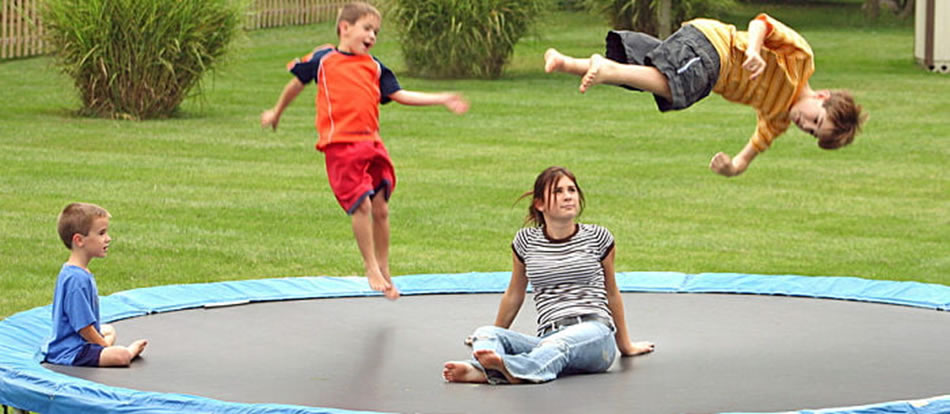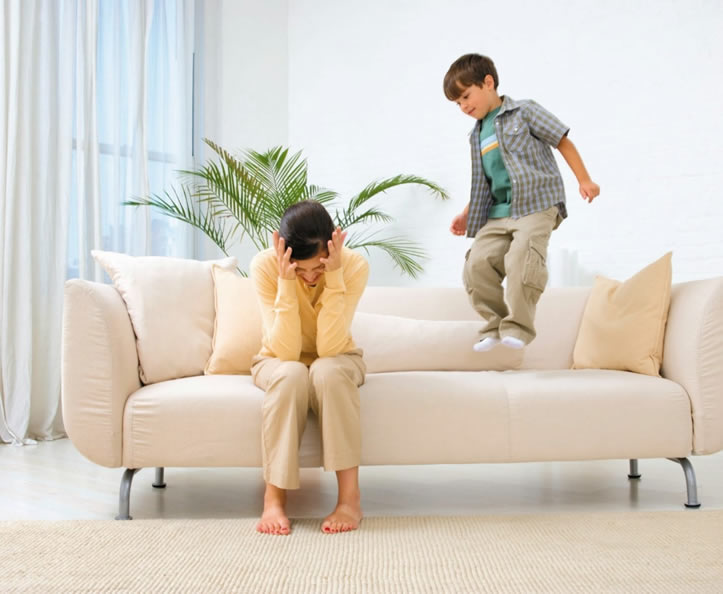By Boma Beny – Iwuoha
We have all come across the generally accepted phrase “Information is power” which is used quite often in different contexts. When explaining the unique qualities of information, one could say its potential to transmit to power is virtually inexhaustible. Possessing information can improve your business, career, marriage, health and has the potentials to change almost all aspects of your life.
Let’s talk about health; I recently read about a mental disorder known as Attention Deficit Hyperactivity Disorder (ADHD or ADD) on WebMD, which is said to be the most commonly diagnosed mental disorder of children. Prior to this, I had absolutely no knowledge of its existence.
Experts say that children diagnosed with ADHD are often found to be hyperactive and unable to control their impulses. They may have trouble paying attention, and these behaviours interfere with their school and home life.
ADHD is found to be more common in boys than in girls and with the right attention is usually discovered during the early school years, when a child begins to have problems paying attention. Adults with ADHD may have trouble managing time, being organized, setting goals, and holding down a job. They may also have problems with relationships, self-esteem, and addiction.
According to specialists ADHD is often characterized by the following symptoms:
The child is easily distracted; doesn’t follow directions or finish tasks; doesn’t appear to be listening; doesn’t pay attention and makes careless mistakes; forgets about daily activities; has problems organizing daily tasks, doesn’t like to do things that require sitting still, often loses things and Tends to daydream.
While many children with ADHD are, in fact, very energetic, high energy alone is not enough to warrant a diagnosis. In fact, children with some forms of ADHD are not high energy at all. ADD, may manifest itself in low energy combined with inattentiveness and other symptoms. So, when might a child with lots of energy be diagnosed with ADHD?
Keath Low, MA, a psychotherapist with the Carolina Institute for Developmental Disabilities at the University of North Carolina, says:
In order to qualify for the diagnosis, a child must have a chronic, pervasive problem with his or her ability to regulate activity level, as well as impairment in their ability to inhibit and control impulses. The impairment of functioning or learning is the key to differentiating ADHD from normal activity.
Do you have a kid who shows a few of these symptoms? Maybe it’s time to visit a specialist. Here’s a story by Larry Silver, M.D., clinical professor of psychiatry at Georgetown Medical Center in Washington, D.C. and director of training in child and adolescent psychiatry at Georgetown University School of Medicine. He says:
“I recently diagnosed eight-year-old Aidan with attention deficit hyperactivity disorder (ADHD or ADD). When I met with his parents to explain the disorder, each time I described a symptom, his mother exclaimed, “That’s me!” or “I’ve been like that all my life, too.” At the end of the appointment, she asked me if she should be evaluated, as well”.
As an adult, Aidan’s mother had jumped from job to job and had difficulty meeting household demands. As a child, she had struggled through school, often getting into trouble and getting poor grades. After a thorough evaluation of her chronic and pervasive history of hyperactivity, distractibility, and other symptoms of ADHD, she was diagnosed by a psychiatrist who works with adults.
Can ADHD Be ‘Cured or Outgrown?
Aidan and his mother both started on ADHD medication. Aidan’s grades and behaviour improved. His mom reported being more relaxed and efficient at work and at home. On a follow-up visit, she remarked, “If only I had been on medication as a child. I could have finished college, I could….” Then she paused: “Oh, my gosh, does this mean that Aidan will never outgrow ADHD and that he’ll take medication for the rest of his life?”
Good question. The best answer I could give was, “Possibly.” Why can’t I be more specific? Didn’t she deserve a clearer answer? Until the early 1990s, the medical community considered the condition a “childhood disorder.” Believing that children outgrew ADHD, physicians routinely took them off medication before high school. In many cases, however, the teens struggled socially and academically, making it clear that ADHD symptoms had not gone away. And, as greater efforts were made to educate parents about ADHD, more and more of them, like Aidan’s mother, began to recognize their own ADHD symptoms.
Clinically, we have seen that some individuals do show enough improvement after puberty that they no longer need medication. But the American Academy of Family Physicians reports that two-thirds of children with ADHD continue to grapple with the condition throughout adulthood.
Is ADHD Medication for Life?
How do I determine whether a particular child still needs medication? I advise taking children and adolescents off medication once a year. If the symptoms of hyperactivity, inattention, and/or impulsivity are no longer noticeable, they stay off. Should these behaviours return, the medication should be restarted. This process teaches adolescents about the challenges ADHD presents in their lives, and how to determine themselves whether medication is needed in school, at home, with friends, and so on. Medication should be used whenever symptoms interfere with the demands and expectations of a specific task or activity. It is not necessarily needed all day, every day.
For example, a college student may learn that she benefits from an eight-hour capsule to cover morning and afternoon classes, but can be off medication while she relaxes, exercises, or socializes later in the day. On evenings when she needs to study, she can take a four-hour tablet at about 6 p.m. An adult may find that he needs medication at work but not at home, or for some social functions, but not others.
Does this mean that my child will need medication for the rest of his life? Possibly. You can find out one year at a time. And, if medication is needed, you can teach him to use it for specific times and situations. In the future, I hope that fewer adults will tell me, “If only I had been on medication as a child….”
ADHD in the Family
As Aidan’s mother found, ADHD has a genetic component.
Attention Deficit Hyperactivity Disorder (ADHD) often appears to run in families, and research studies have suggested that there may be a genetic component to this disorder. Individuals diagnosed with ADHD may have close blood relatives with the disorder. Scientists believe that ADHD is a complex disorder that probably involves at least two genes. Non-genetic causes such as abnormal brain development, brain injury or environmental factors are also believed to play a role in the disorder.
After reading from Larry Silver, M.D, I can better understand some of the kids I have come across and adults I have to deal with who probably just like Aidan’s mother, have lived their lives unaware of this condition. In her words; “If only I had been on medication as a child. I could have finished college”.
ADHD may not have a permanent cure, but it can be controlled through proper care, and even though it may have a genetic component, armed with the right information, people with this condition can live and develop differently. Here are five tips from the ADD Resource Centre that can help better management of a child with ADD.
- Ensure your child’s bedroom creates a soothing atmosphere. Paint the walls a calming, serene colour and eliminate distractions like too many posters and/or toys.
- Provide structure, but don’t be overbearing. Reward charts and chore wheels are a great way to keep younger kids on top of their responsibilities while still keeping it positive, and as they get older, this can evolve into keeping a planner or calendar.
- Take time to point out your child’s “wins” each day. Set a goal to acknowledge at least three positive behaviours your child has exhibited every single day. Tell him or her specifically what was done well and why it’s important. It becomes habitual to spot and correct negative behaviours but avoid making those moments a focus. Celebrate behavioural wins as they happen so that your child knows that not only do you recognize their progress, you also appreciate it.
- Make homework time fun. Try to make your child’s time at home as fun as possible, especially the time he’s meant to be doing homework.

- Get active. Exercise helps children with ADHD expend excess energy or simply burn off the stress of the day. The result is that they’re able to concentrate and control impulses better. Find something your child loves to do; swimming, karate, basketball, etc. and make sure they’re able to take part in that physical exercise as often as possible.




